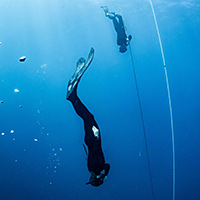🇬🇧 And the whale sharks are here 🥳
After the 2019 season ended, like everyone we got caught in the pandemic chaos, and continuing our research efforts on-site has been challenging. We are so excited to be finally back in the field with the whale sharks! Here is an update on our work over the recent months.
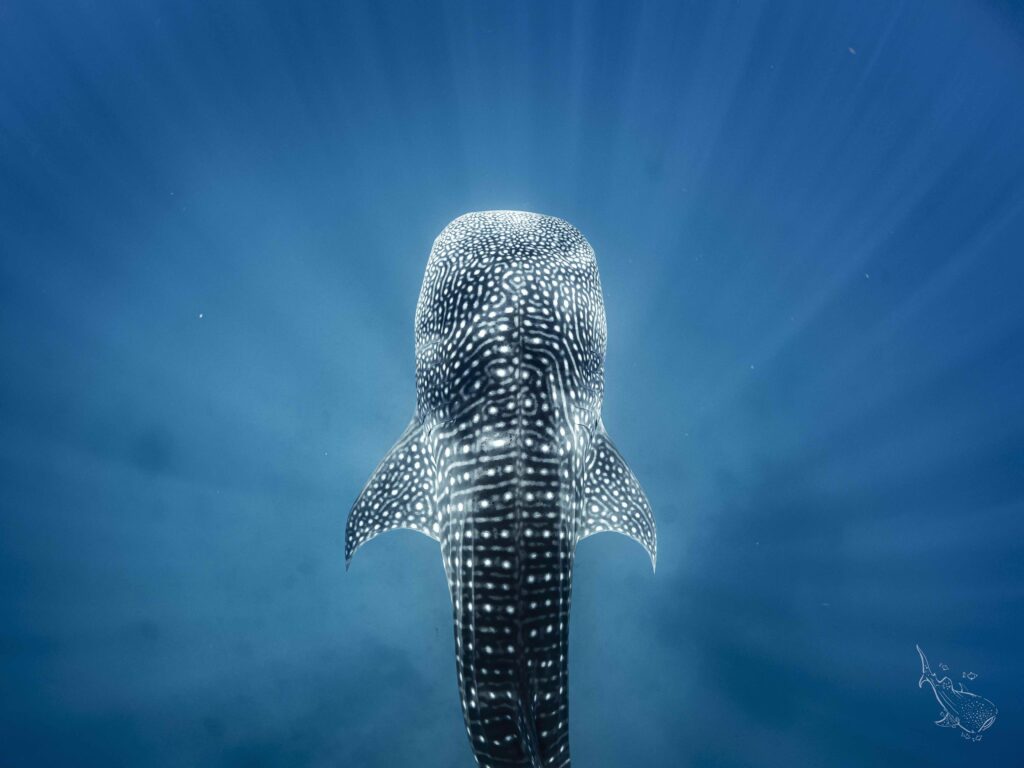 Back to basics
Back to basics
Coming back to Madagascar post-covid resulted in many changes locally for the team, for instance our old center doesn’t exist anymore, and logistically quite a few aspects had to be addressed.
In Mid-August, Léonce joined Stella, and is now managing the volunteer programme and all data entry processes. Remotely, Amy and Claire assist Léonce with the data processing. Justin has coded an app which is being used by the field team while at sea, which greatly facilitates our work! We have 12 volunteers joining us this year to help collect data, and two master students, including a Malagasy scientist, doing their master thesis with the project. A huge thank you to Julie, Emilie, Laura and Alizée for their help as volunteers and amazing days at sea! We are incredibly grateful to all volunteers and project partners who have contributed to our massive restructuring in 2022.
Whale sharks started arriving in late September as usual, and are now officially here. We continue our photo-identification efforts with our partner operator Baleines Rand’eau, and thanks to external contributions from other operators have now identified more than 50 individuals!
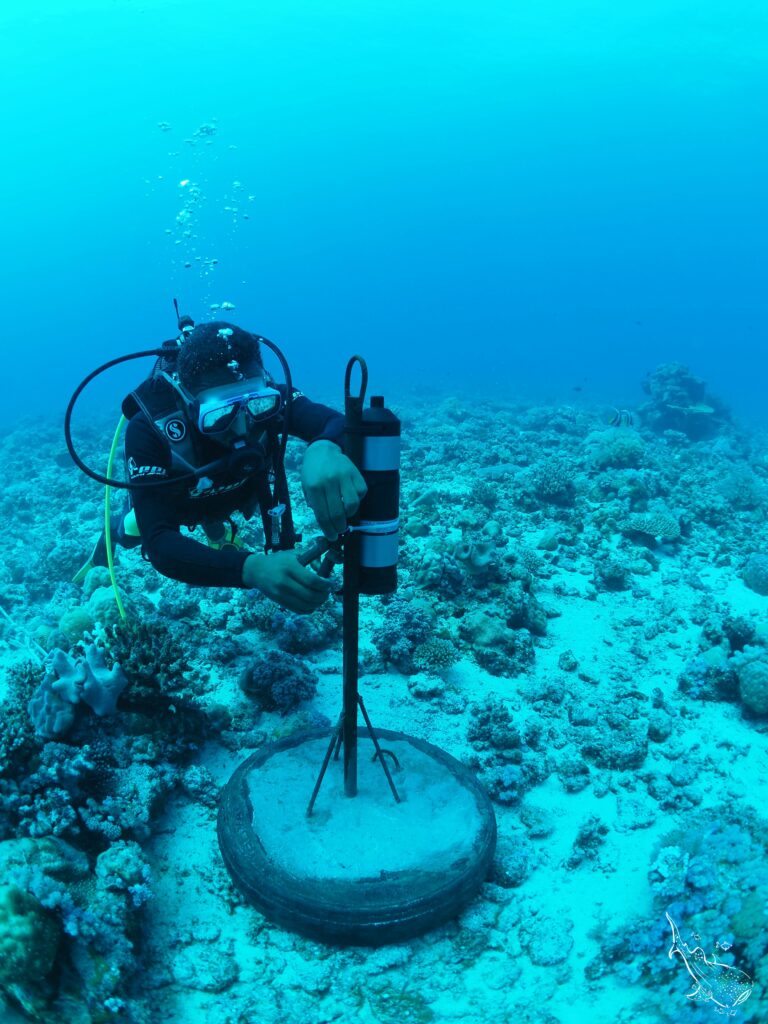 Deploying the acoustic array
Deploying the acoustic array
With support from the Shark Conservation Fund and Florida International University, and in partnership with the Wildlife Conservation Society and the Marine Megafauna Fondation, this year we are (finally!) deploying underwater receiver stations, as well as acoustic tags, to monitor the fine-scale movements and timings of whale shark presence year-round in Nosy Be. This data will also support the expansion of the two existing Marine Protected Areas in the region, to try to encompass more of the whale shark feeding area.
The first part of the mission has been to deploy the 9 stations while scuba diving. Thanks to support from Forever Dive, Nosy Decouvertes and Oceane’s Dream, and despite the windy conditions ahead of the season, Stella and Léonce successfully anchored the stations across the bay at various shallow locations.
The second part is taking place now and involves deploying acoustic tags on 30 different whale sharks, in order to track their presence across the bay and once the season ends. These tags will hopefully emit shark location data for the next five years.
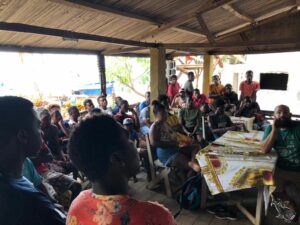 Operator training
Operator training
This year we partnered with Cetamada to create more user-friendly training materials for our annual operator training workshops. Through the creation of short videos in both French and English, we were able to deliver more than 10 training sessions across Nosy Be, Nosy Sakatia and Nosy Komba, raising awareness about the code of conduct. We are eagerly awaiting the signature of the new law on responsible encounters with marine wildlife, which we contributed to on the whale shark aspect. This will require all tourism operators to follow the code of conduct per Malagasy law.
A big season ahead
This year has been a big year for the Madagascar Whale Shark Project, with a lot of restructuring and strategic thinking. We are also collaborating on a few research projects, and hosting a few groups this year/ Funding wise, we are still looking for long-term donors and partners to cover our core costs.
We are also identifying new whale sharks who need new names, did you know you could pick a name and adopt a whale shark? For regular updates, please follow us on social media and sign up to our newsletter.
Thanks again for your continued support, and we will be back with more news soon!
The Madagascar Whale Shark Project Team
🇫🇷 Et les requins baleine sont là 🥳
Nos efforts de recherche se sont arrêtés en 2020 avec la pandémie de COVID-19 mais cette année toute l’équipe du MWSP est sur place plus motivée que jamais pour reprendre nos activités de recherche et de sensibilisation ! Voici un résumé des dernières nouvelles de Nosy Be.
 Retour aux sources
Retour aux sources
Le retour à Madagascar après ces deux années d’absence a entraîné de nombreux changements au niveau local, notre ancien centre n’existe plus, et plusieurs aspects logistiques ont dû être revus. Les premières semaines ont été intenses !
Mi-août, Léonce a rejoint Stella et gère désormais le programme de volontariat et les actions liées à la saisie des données. À distance, Amy et Claire apportent leur aide également et Justin, notre expert en data, a développé une application pour faciliter l’ensemble du processus de la saisie au traitement de la donnée ! Cette année, 12 volontaires nous rejoignent pour la collecte en mer et deux étudiants en master, dont un scientifique malgache, réalisent leur thèse de master avec le projet. Un énorme merci à Julie, Emilie, Laura et Alizée pour cette première session riches en émotion sur l’eau !
Les requins baleine ont pointé le bout de leur nez mi-septembre et sont aujourd’hui officiellement là. Nous continuons nos efforts de photo-identification, avec notre opérateur partenaire Baleines Rand’eau, et nous avons identifié à ce jour plus de 50 individus !
 Déploiement du réseau acoustique
Déploiement du réseau acoustique
Nous déployons cette année des stations de réception sous-marines, ainsi que des balises acoustiques, pour surveiller la présence des requins baleine tout au long de l’année à Nosy Be. Ces données nous permettront de mieux comprendre la distribution géographique des requins et d’apporter plus de détails concernant leur présence saisonnière dans la baie, afin de soutenir l’expansion des deux zones marines protégées existantes dans la région. La première étape, réalisée au mois d’août, a consisté à déployer les 9 stations en plongée sous-marine, l’équipe a réussi à ancrer les stations à travers la baie à différents endroits peu profonds.La deuxième étape consiste à déployer les balises sur 30 requins baleine différents, ces balises émettront des données de localisation pendant les cinq prochaines années.
Nous remercions nos partenaires sans qui rien ne serait possible : Shark Conservation Fund, Florida International University, Wildlife Conservation Society et la Marine Megafauna Fondation, et sur place, Forever Dive, Nosy Découvertes et Oceane’s Dream pour leur soutien.
 Formation des opérateurs
Formation des opérateurs
Cette année, nous nous sommes associés à Cetamada afin de développer de courtes vidéos pour nos ateliers annuels de formation. Grâce à cette nouvelle plateforme de formation, nous avons pu organiser plus de 10 sessions de sensibilisation au code de conduite à Nosy Be, Nosy Sakatia et Nosy Komba. Nous attendons avec impatience la signature de la nouvelle loi (à laquelle nous avons contribué), qui doit réglementer les rencontres avec la faune marine, pour étendre nos formations à tous les opérateurs de la région.
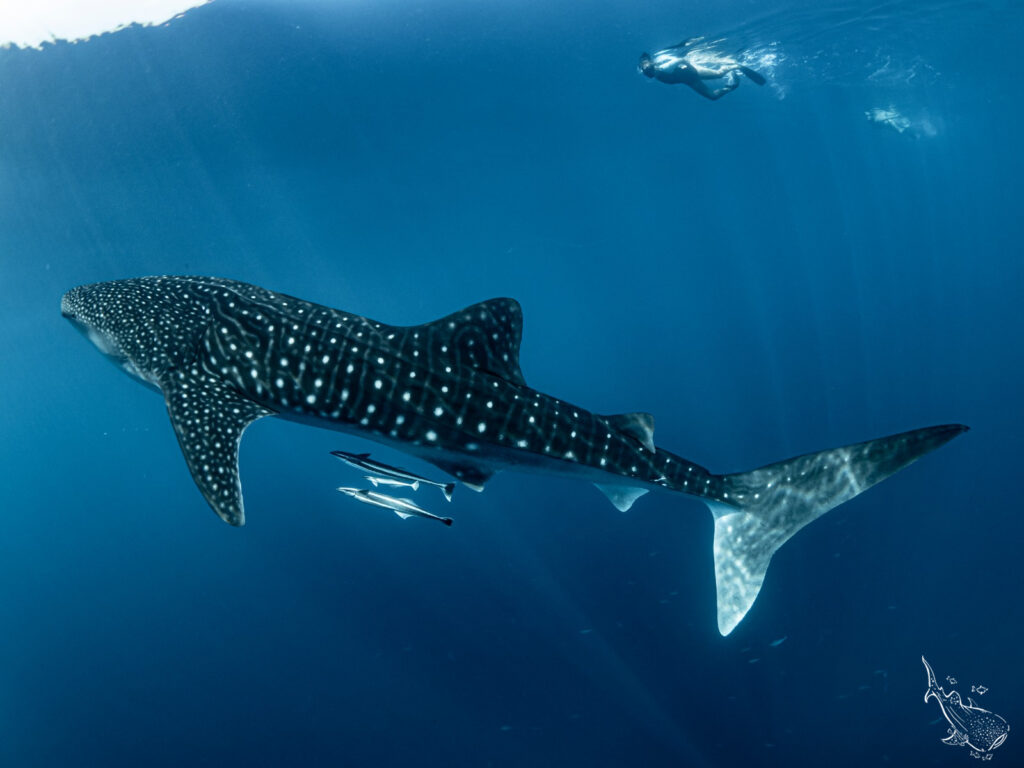 Une grande saison qui commence
Une grande saison qui commence
Le Madagascar Whale Shark Project évolue et de nouvelles activités se développent, nous élargissons notre équipe locale à Madagascar afin d’assurer la pérennité de nos actions. Cette saison, nous collaborons sur divers projets scientifiques, en plus d’accueillir des groupes privés.
Cependant nous avons encore et toujours besoin de soutien, nous sommes toujours à la recherche de donateurs et de partenaires qui souhaitent soutenir le projet sur la durée. Nous identifions également de nouveaux requins baleine qui ont besoin d’être nommés. Saviez-vous que vous pouviez nommer et adopter un requin baleine?
Pour suivre nos activités, n’hésitez pas à vous abonner à nos réseaux sociaux et notre newsletter.
Merci encore de votre fidélité et votre soutien, et à très vite !
L’équipe du Madagascar Whale Shark Project
 October 20, 2022
October 20, 2022